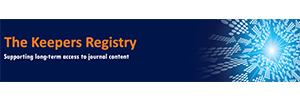THE IMPLEMENTATION OF PUERPERAL GYMNASTICS WITH THE PROCESS OF UTERINE INVOLUTION POST PARTUM MOTHER
Abstract
Gymnastics childbirth is one way to overcome the damage to mobility in the form of puerperal women movements useful to tighten the abdominal muscles that are loose, smooth lochea expenditure and accelerate involution. Interviews with the mother post partum revealed that they have never done physical exercises after childbirth and are rarely mobilized to do gymnastics childbed. The purpose of this study is to see related puerperal gymnastics suplementation of the process of uterine involution in postpartum mother. This research was conducted in September to October with quantitative methods. The instrument used was the observation sheet, and gauges with a population of all mothers who gave birth to normal post partum that meet the criteria with systematic sampling. Out of 20 respondents 10 were obtained who were given treatment gymnastics puerperal uterine involution process that is 80% full speed. While 3 respondents out of the rest 10 who were not given treatment of puerperal gymnastics experienced slow involution that as many as 3 people. The study showed statistically significant outcome at P value of 0,004 and so the alternative hypothesis (Ha) has been accepted. From the result of this study it can be conclude that there is a relationship between the implementation of puerperal gymnastic with the process of uterine involution post partum mother. It may be effective if healthcare institution implement puerperal gymnastic to post partum mother to aid the recovery of the mother after the process of labor and induce less complicatios such as hemorrhaging post partum.
Keywords:
Puerperal Gymnastics, Uterine InvolutionDownloads
References
Andriyani, Nurlaila & Pranajaya, R., (2013). The influence gymnastics on decrease in high fundus post partum to decrease high fundus uteri on mother postpartum. Jurnal Keperawatan, IX(2).
Bobak, L. M., Lowdermilk, D. L. & Jensen, M. D. (2005). (Translation* Wijayarini, M.A). Buku AjarKeperawatan Maternitas. 4th edition. Jakarta: EGC.
Farrer, H. (2001). Perawatan Maternitas. Edisi 2. Jakarta : EGC. 267 hlm. ISBN 979-448-462-8.
Hastono, S. (2006). Basic Data Analysis For Health Research Training. Depok : Faculty of Public Health. Indonesia University.
Hidayat, A. A. (2007). Nursing Research Methods and Data Analysis Techniques. Jakarta : Salemba Medika.
Indriyani, (2015). An Implementation Of Postnatal Education Toward The Perception About Self Care On Immediately And Early Postpartum Period Of Postpartum Mothers And Their Families In Jember. IOSR Journal of Nursing and Health Science (IOSRJNHS). 4(5), pp 20-2.
Kasdu, D. (2006). Postpart Care Guidelines. Jakarta: Batavia.
Lee, K. H., Lee, Y. T., Chen, T. C., Yeh, C. C., Chen, J. Y., Liu, L. Y. & Chi, C. H. (2013). Effects of Sheng Hua Tang on
Uterine Involution and Ovarian Activity in Postpartum Dairy Cows. Asian Australas. Journal of Animal Science. 26(9), pp 1247-1254.
Saifuddin, A. B. (2006). National Reference Book of Maternal and Neonatal Health Services. Jakarta : Sarwono Prawirohardjo.
Saminem. 2009. Seri Asuhan Kebidanan Kehamilan Normal. Jakarta : EGC
Wasis, (2008). Pedoman Riset Praktis Untuk Profesi Perawat. Jakarta : EGC.
Zduńczyk, S., Milewski, S., Barański, W., Janowski, T., Szczepański, W., Jurczak, A., Raś, A. & Leśnik, M. (2004). Postpartum Uterine Involution in Primiparous and Pluriparous Polish Longwool Sheep Monitored by Ultrasonography. Bulletin- Veterinary Institute in Pulawy, 48, pp 255-257.
Downloads
Published
How to Cite
Issue
Section
License
Copyright (c) 2017 Malaysian Journal of Medical Research (MJMR)

This work is licensed under a Creative Commons Attribution-NonCommercial-NoDerivatives 4.0 International License.
























